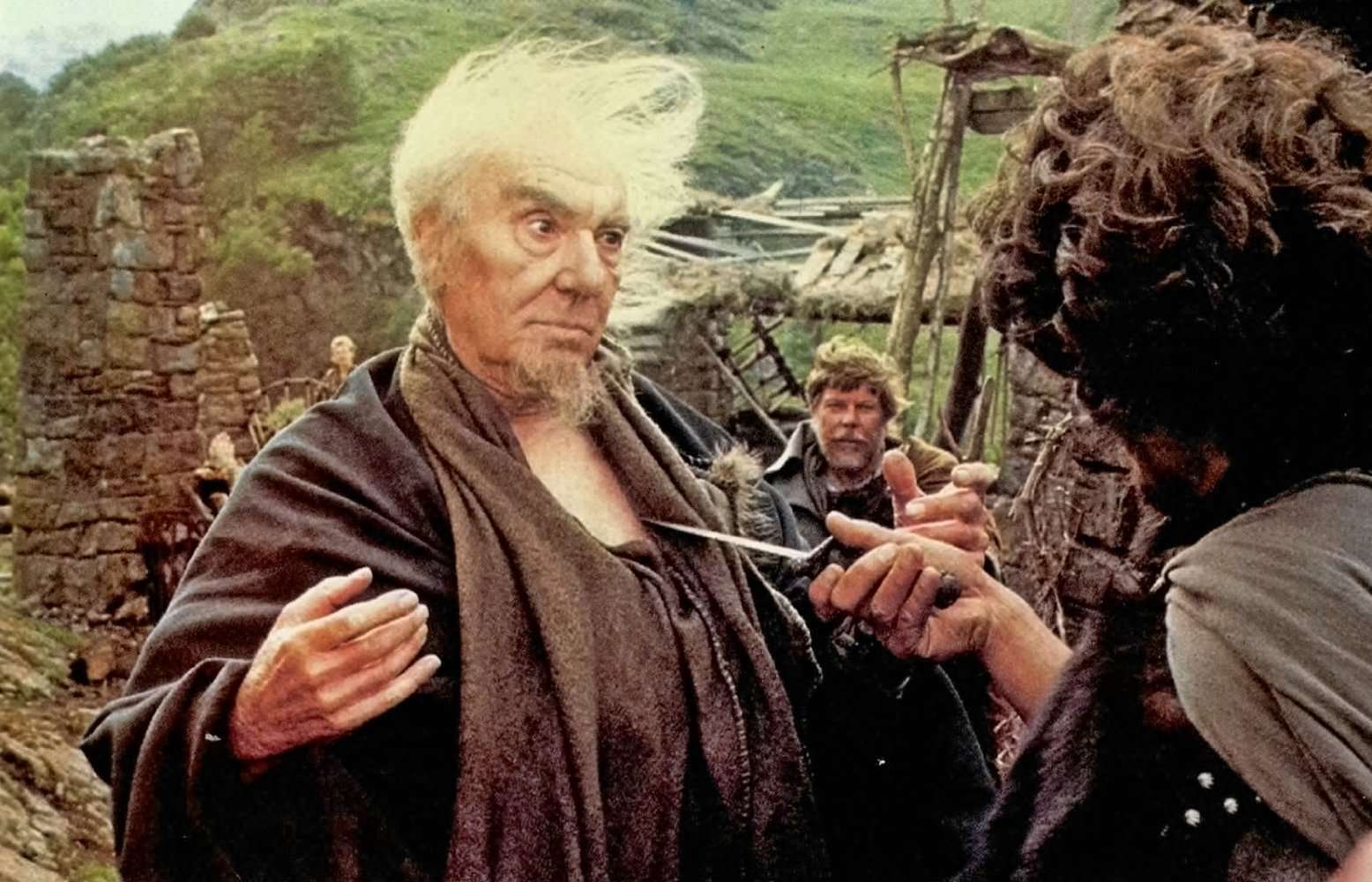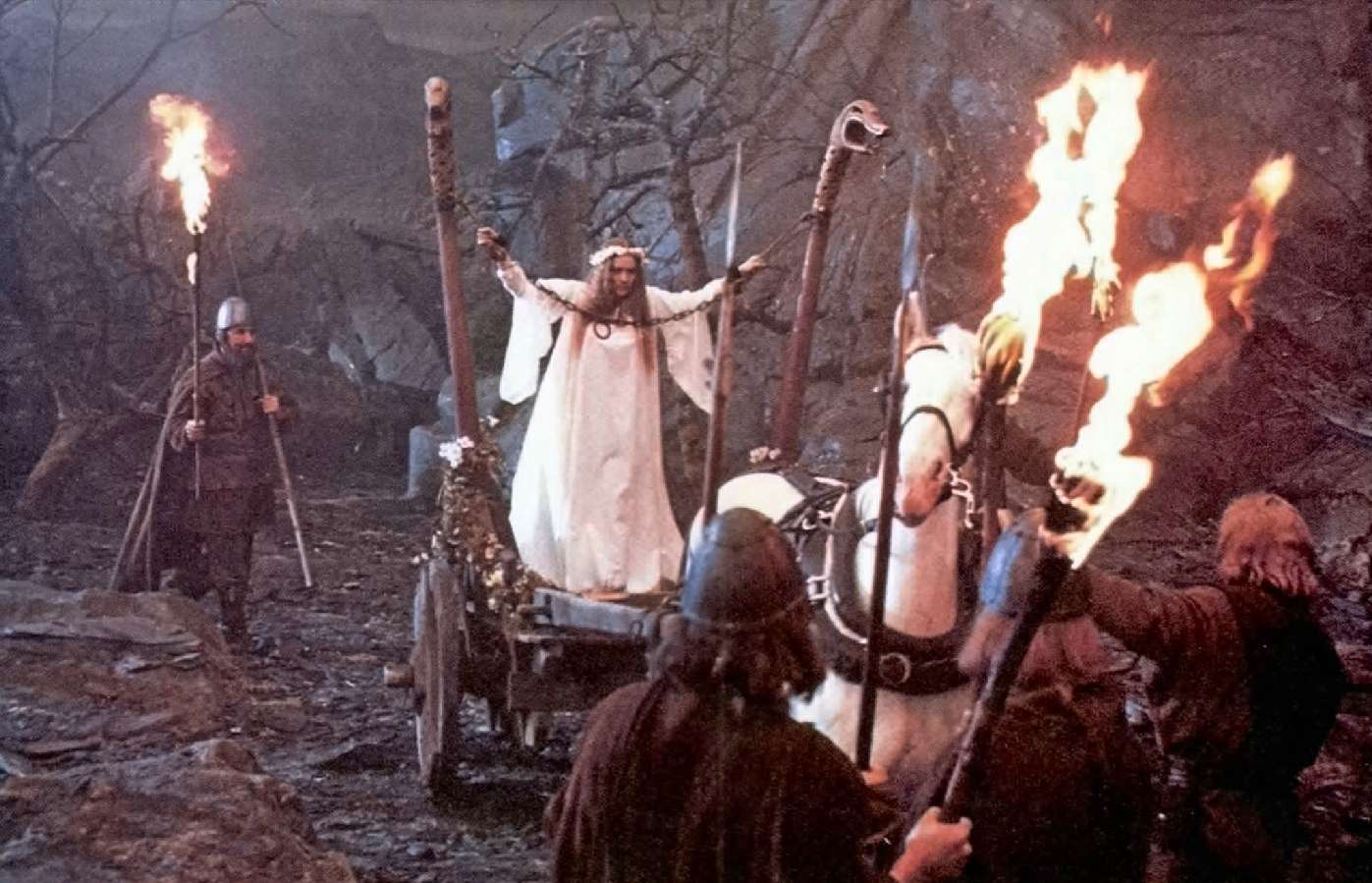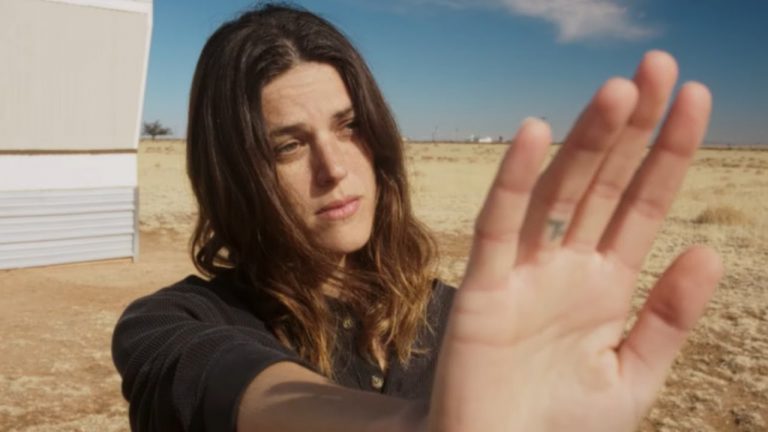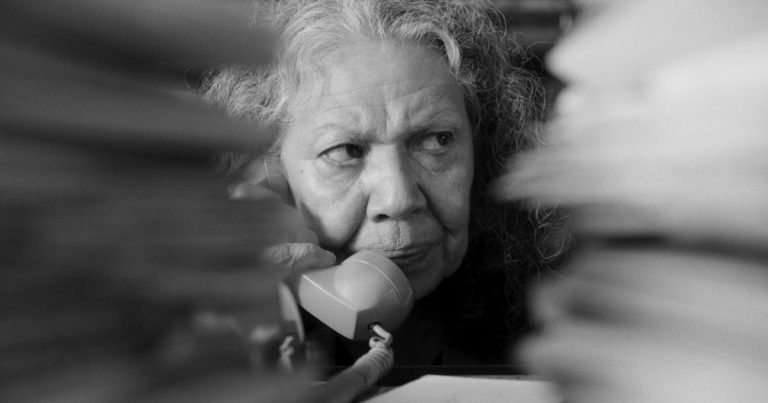The post-Star Wars effects boom in the 1980s didn’t just bring sci-fi back to prominence, but fantasy and horror as well. Virtually every filmmaker of the era was desperate to show audiences something they’d never seen before with the newfound era of more sophisticated physical effects. The first non-Lucasfilm production to utilize ILM, “Dragonslayer” was intended to be a prominent, big-budget example, but tanked at the box office, largely regulated to late-night cable showings.
Though released on DVD by Paramount with little fanfare back in the market’s early days, the film has cultivated a following since its 1981 release, finally earning a bit of recognition with the recent Blu-Ray and 4K reissues and accolades from the likes of George RR Martin and Guillermo del Toro, the latter of whom contributes a commentary track to the new release alongside the film’s director, his longtime collaborator Matthew Robbins. Despite some pacing issues, the film itself deserves its recent rediscovery with its stunning effects, representing some of the era’s very best, dazzling production design, and subtle world-building.
Director Matthew Robbins and his co-writer Hal Barwood came from the same legendary film school class as Lucas, Spielberg, Millius, and the rest of the so-called Dirty Dozen who would shape blockbuster filmmaking for decades to come and completely define the 80s, serving as co-writers on Steven Spielberg’s first theatrical feature “The Sugarland Express.”

After researching fantasy tales, Barwood and Robbins sought to distance themselves from gleaming knights in shining armor, instead opting for a grittier and more earthy approach. Though it’s nowhere near the same level of brutality, it’s not a million miles from the likes of “Game of Thrones” in a world of more grounded fantasy outside of its titular beast.
Indeed, along with del Toro, the film counts Martin among its fans, who consider its monster cinema’s greatest dragon, and the producers of “Game of Thrones” went so far as to smuggle the creature’s name into an episode. Our tale begins when a ragtag band of villagers, terrorized by the dragon with the all-too-cool name of Vermithrax Pejorative, seek the aid of an old wizard known as Ulrich of Cragganmore (Shakespearean legend Sir Ralph Richardson), but when he’s killed, it falls to his young apprentice Galen Brandwardyn (Peter MacNichol) to carry on his work and save the town. If these names seem to come straight out of a Dungeons and Dragons campaign, it’s worth noting that some of the film’s biggest fans at the time were fantasy and gaming magazines.
The cocky Galen seals the creature inside a cave, thinking his work is easily accomplished, but finds that the beast may be much, much more fearsome than he had initially believed. Virgins are sacrificed to keep the dragon appeased, and lots are drawn to decide who will be the unfortunate victim. In a sly bit of social commentary, the richest parents in town can keep their daughters’ names out, and when Galen falls for spunky brunette beauty Valerian (Catlin Clarke), he decides to take to the monster’s lair to battle it alone.
Filmed on lush and rustic locations in Scotland and Wales, “Dragonslayer” is a visual marvel. Special kudos to cinematographer Derek Valint of Ridley Scott’s “Alien” and production designer Elliot Scott. Altogether, the film creates a wholly convincingly lived-in Dark Age world. And the dragon? Well, it’s worth the price of admission all by itself. Unlike the talking dragons of Tolkien’s legendarium, Vermithrax Pejorative is a fearsome and animalistic monster. The film utilized every special effects technique known in 1981 to bring the creature to life convincingly and does so spectacularly, even going so far as to use real World War II-era flamethrowers for its breath.

Several computerized models were created, including an eight-foot head mockup, and a technique known as Go-Motion which gave the models themselves a motion blur to remove the jerkiness that was associated with previous stop-motion films. Sixteen dragon puppets, including one over forty feet in length, were featured in the film at various points, the creators strove to give the monster an actual sense of biology.
The film’s one issue is the pacing. Though the world it creates is fascinating, the movie itself luxuriates in it a bit too long before getting to the dragon. In a way though, in the age of instant gratification CGI, the way that it is revealed piece-by-piece has a certain mystique. At the film’s center is a likable romance and some solid performances, including John Hallam as a militaristic knight whose duty to protect the kingdom takes him to any extreme, Peter Eyer as the kingdom’s arrogant but naive king and Ian “Palpatine” McDiarmond as an opportunistic priest. “Dragonslayer” was controversial upon its release because of Disney’s involvement in the distribution, although not the production, because of scenes of graphic violence and less-than kid/friendly content.
But it’s a rarity among fantasy films pre-LOTR: neither a campy joke nor a kid’s tale, it stands with Boorman’s concurrent “Excalibur” and Milius’ upcoming “Conan the Barbarian” adaptation as a genuine, proper sword-and-sorcery tale for grown-ups. Full of gorgeous vistas, dazzling special effects, dark themes, and vivid characters, it is a treat for fantasy fans and well worth checking out, especially in an era when the genre seems overplayed. “Dragonslayer” is available for digital purchase, on DVD, Blu-ray, and 4K, the latter two with an exclusive new documentary and a commentary track from Robbins and Guillermo del Toro, and is currently streaming on Paramount Plus.


![The King and The Clown [2005] Review – A Shakespearean Tragedy](https://79468c92.delivery.rocketcdn.me/wp-content/uploads/2019/05/Lee_The-King-and-the-Clown-High-On-Films-e1558626220296-768x422.jpg)
![Love, Simon Review [2018]: Everyone Deserves A Great Love Story](https://79468c92.delivery.rocketcdn.me/wp-content/uploads/2018/08/love-simon-screenshot-1-768x432.jpg)
![Knives Out [2019] ‘TIFF’ Review – A gripping, Often Hilarious Mystery](https://79468c92.delivery.rocketcdn.me/wp-content/uploads/2019/11/Knives-Out-Review-e1574792109668-768x435.jpg)
![A Fugitive from the Past [1965] Review – Probing the Postwar Devastation of Japan through Thriller Framework](https://79468c92.delivery.rocketcdn.me/wp-content/uploads/2020/07/A-Fugitive-from-the-Past-1965-768x495.jpg)
